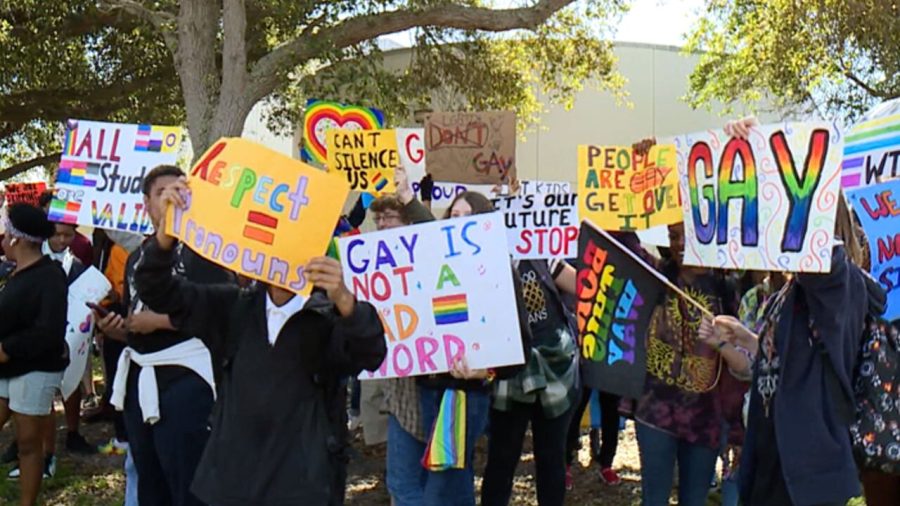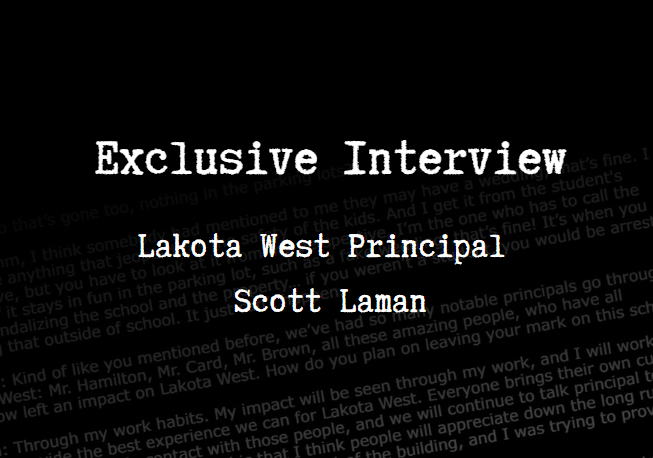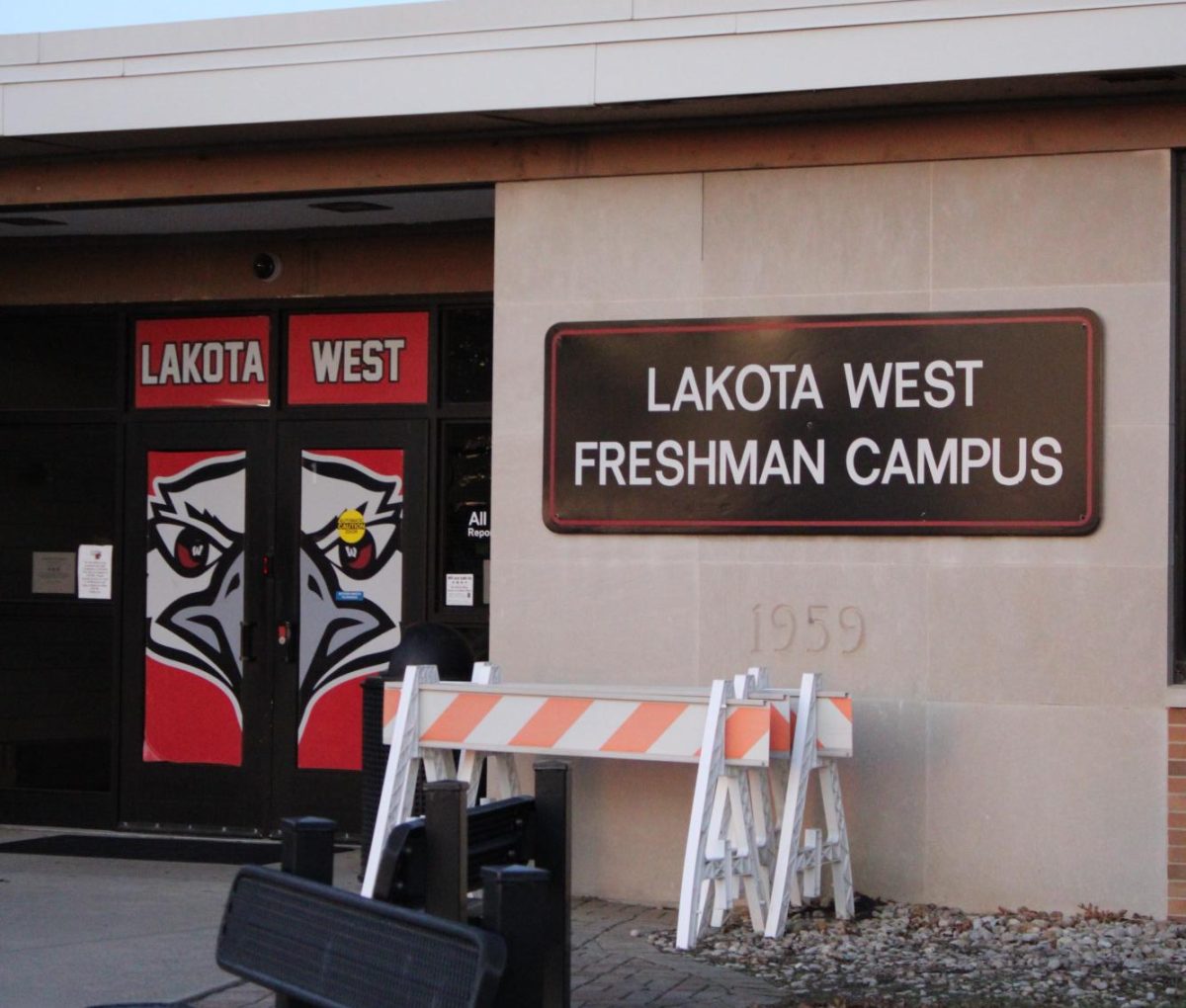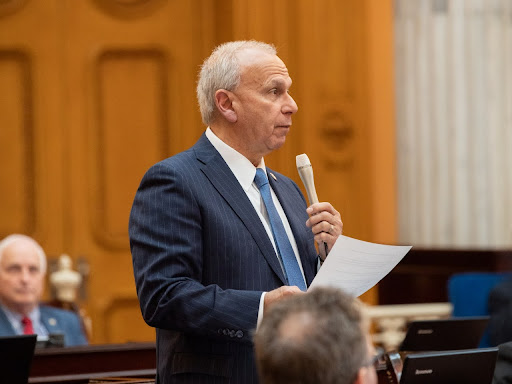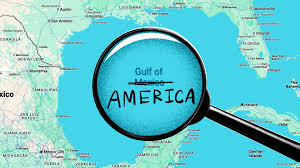If you’ve been following the news recently, you might have heard the commotion over a certain new law, causing anxiety amongst teachers and the youth in the state of Florida. This law comes on the wave of recent legislative backlash against the LGBTQ+ community, with multiple bills being introduced in the US that encourage the exclusion of LGBT people in certain areas and in the school curriculum.
Why is this bill causing such an uproar?
This bill is called the Parental Rights in Education Bill, aka the ‘Don’t Say Gay’ bill. This bill restricts the ability of teachers to discuss LGBT topics and censors the curriculum from things deemed not “age-appropriate” for students to discuss. Additionally, this bill, in turn, grants parents the ability to take legal action against school districts and educators if they believe educators are violating this new law in any way, shape, or form.
This bill has the support of Floridanian Governor Ron DeSantis, and several other senators that wish to shift the responsibility of these topics to parents rather than incorporate them into the education system. DeSantis stated his position on the matter in a press conference, in which he said, “ Schools should be teaching students to read, to write…they need to teach them science, history. We need more civics and understanding of the US constitution, what makes our country unique, all those basic things.”
He states that the original purpose of the bill was to ban public school districts from teaching about sexual orientation or gender identity in kindergarten through the third grade. However, the wording in the bill is vague, which leaves it open for interpretation. For example, in the bill it speaks about “prohibiting classroom discussion about sexual orientation or gender identity in certain grade levels or in a specified manner”. They do not specify the grade level that will be affected, nor does it specify what “specific manner”means.
Those that oppose this bill state that this legislation is a violation of 1st amendment rights, and that the only thing that this bill would accomplish is shaming a marginalized group that already faces disporportianal amounts of hate and discrimination. Sam Ames, a representative of the largest suicide-prevention organization for LGBT youth, the Trevor Project, condemns this bill. They say it would further isolate children that already deal with staggering suicide and depression numbers. “This bill will erase young LGBTQ students across Florida… by policing their identity and silencing important discussions about the issues they face,”.
Another reason is that the vague language could also force teachers and schools to “out” LGBT identifying students to parents without prior consent. This could effectively place a child into an unsafe situation, and could affect the already delicate suicide rates even more.
The White House itself even took a stance on this manner, with President Biden also voicing his opposition for the bill and describing it as ‘hateful’. However, even with all this backlash, matters pertaining to the education system depend on the State Senate, which in Florid,a Republicans have a majority in, meaning that it would be very difficult to eliminate.
When asked about the bill, White House Assistant Press Secretary, Kevin Munoz, said to the press that “Across the country, we’re seeing Republican leaders take actions to regulate what students can or cannot read, what they can or cannot learn, and most troubling, who they can or cannot be.”
This statement is backed with some truth, due to many instances where bills that alter the education system appearing in court recently. For example, a bill being passed in Indiana called HB 1134 is an education bill that plans to set restrictions on the public school curriculum. Some that are against the bill even go as far as to say that this bill could change the way the teaching of certain historical facts is done though all K-12 levels. In addition to this, as many as twenty-five states have taken steps to stop critical race theory from being taught at schools, which critics say does a disservice to students by not teaching them about systemic racism in America.
Education forms a huge part in forming the minds and opinions of young individuals, and that really begs the question if this censorship is best when it comes to the future of us students.
Resources to know more about the Bills:
- https://www.thetrevorproject.org/blog/the-trevor-project-condemns-florida-dont-say-gay-bill-targeting-lgbtq-students/
- https://www.cbsnews.com/news/florida-lgbtq-bill-controversy-dont-say-gay/
- https://www.cnn.com/2022/02/08/politics/white-house-desantis-florida-bill/index.html
- https://www.aclu.org/past-legislation-affecting-lgbt-rights-across-country-2020
Indiana State Bill:
Critical Race Theory:

